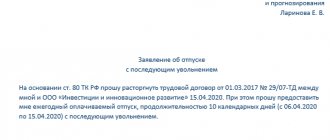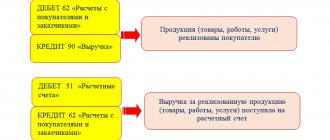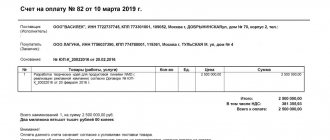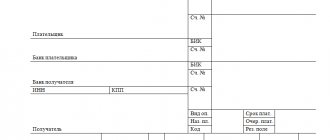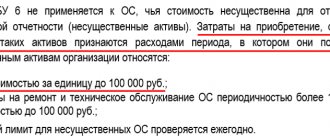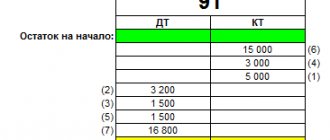Through seeking to prosperity
Labor discipline is the key to a successful business.
This applies not only to achieving personal results, but also affects the prosperity of the company as a whole. Sloppy employees who are late for negotiations, look sloppy, let down counterparties and take it out on clients will not allow the implementation of even the most ideally verified plan by management. And good salaries, comfortable jobs and regular bonuses do not always motivate staff. More precisely, the carrot method is good, but not for the absolute majority.
There are few people who work properly on their own, fulfilling plans and without causing any complaints. They are non-confrontational and neat. At the same time, not because of possible “goodies” from the company, but just the way they are designed. Perfectionists or neat freaks by nature.
Even larger is the group of those who are subject solely to the whip in the form of disciplinary sanctions. Only the threat of punishment motivates them, if not to professional achievements, then at least tolerable compliance with job descriptions and local regulations of the enterprise.
Some do not value their place so much that they violate the “rules of conduct” and fail to fulfill their duties over and over again, accumulating penalties. The bosses of such employees ask themselves: after how many reprimands can an employee be fired?
When a disciplinary sanction in the form of a remark is applied
A reprimand is the most common measure of influence on employees who do not comply with the rules established in the organization. And also the mildest: some employers are not even sure whether a remark is a disciplinary sanction, so they make it orally and do not formalize it with any documents. The Labor Code of the Russian Federation provides for only three types of disciplinary sanctions:
- dismissal;
- rebuke;
- comment.
Dismissal is the most severe measure that an employer can apply to an employee. The reason for this must be appropriate: truancy, theft or other gross violation of discipline. The law also allows employees to be fired for less significant but regular violations. In other cases, a reprimand and reprimand are used - as disciplinary measures less severe than termination of employment relations at the initiative of the employer.
| Valentina Mitrofanova will tell you what's new in labor legislation this week. Watch the new episode of Personnel Review. |
In practice, imposing a disciplinary sanction or remark makes sense if the fact of misconduct is proven, but its negative consequences are minimal: no one was hurt, no damage was caused to the company’s property and the conflict that arose was completely resolved.
| Example During a meeting in the sales department of Delta LLC, one of the managers, Ivan L., communicated rudely with colleagues, reacted aggressively to all attempts by the immediate manager to understand the essence of the conflict, and then left the office completely, without waiting for the meeting to end. Subsequently, the conflict was resolved, but the head of the department did not want to put up with such an obvious demarche and wrote a memo to the director of Delta LLC. Ivan L. refused to give an explanation. Based on the report and information about the incident received from other employees of the department, the employer issued an order for disciplinary punishment in the form of a reprimand, since Ivan L. violated not only corporate standards of conduct, but also the manager’s job description, which directly states his obligation to attend sales department meetings. |
A disciplinary sanction in the form of a reprimand can only be imposed on an employee who is familiar with the internal regulations, job descriptions and other local documents establishing standards of behavior at work..
If an employee violated discipline for the first time and without malicious intent, for example, due to forgetfulness, he delayed submitting a report for a couple of days or was late returning from a lunch break, the employer is limited to a remark. But if this situation often repeats - being late becomes a habit, reports are not submitted on time over and over again - more severe measures can be applied, for example, a reprimand.
Is it possible to fire someone for one reprimand?
How many reprimands are enough for dismissal? Before answering this question, let's figure out what penalties generally exist and why they are used.
Violations of official duties, requirements of regulations, instructions and orders are disciplinary offenses. An important point is that a person’s actions should not constitute a crime or administrative offense. After all, criminal liability is provided for crimes, and administrative liability is provided for administrative offenses.
Punishments for disciplinary offenses are provided for in the Labor Code of the Russian Federation. Today there are three types:
- comment;
- rebuke;
- dismissal.
A reprimand is an independent punishment and not a reason for dismissal. Of course, if we are not talking about a relapse.
It is strictly forbidden to invent or approve any other options. Labor relations are not a field of fantasy, unfortunately for many managers. We pay special attention to the fact that it is prohibited to develop a system of fines, calling them disciplinary sanctions.
How can you cancel or challenge a reprimand?
If an employee does not agree with the reprimand, or if he simply wants to keep his job, there are several ways to resolve the issue:
- First of all, it can be recommended to contact your immediate superior with a request to cancel the penalty imposed. This can be done at any time, but it is advisable to do it within one year after it is issued, since after this period the reprimand will already be exhausted from a legal point of view. But to do this, the employee needs to actually justify his request. And to do this, it is recommended to prove that the offense was realized, that the employee did everything possible to rehabilitate himself. If the company management deems it necessary, an appropriate order will be issued. Please note that without documentary evidence of the removal of the penalty, the revocation of the reprimand is illegal. The manager himself can initiate the removal of a penalty on behalf of his subordinate. Moreover, an order can be drawn up at any time, even the next day after the order is issued; this is established in Article 194 of the Labor Code of the Russian Federation. The main thing here is that the order to lift the penalty must indicate the basis: the date of issue of the order of reprimand and the date of its ratification. It would not hurt to indicate the reason for this decision.
An order to lift a disciplinary sanction is issued in any form
- You can challenge the reprimand at the labor inspectorate at the place of registration of the enterprise. To do this, it is enough to write a statement indicating the violated rights, provide documentary reasons for canceling the reprimand and restoring labor rights. As a rule, controllers consider a complaint and check all the facts within 15 days. The basis for filing an application may be the absence of a package of documents (evidence) or their inconsistency in the time of registration, etc.
- The employee also has the right to appeal to the authorities for the consideration of individual labor disputes - to the court at the place of residence or at the place of registration of the enterprise.
Video instructions: how an employee can appeal a reprimand
The employee is fired. What about organizations?
The article is devoted to the responsibility of employees, but it is worth saying a few words about the responsibility of the second party - the employer, who, in his thirst for fair punishment, may demand that a lawyer or personnel officer go beyond the boundaries of labor legislation. This is less common in budgetary institutions, but the management of private companies considers themselves less bound by legal norms. Wrong position.
So, let’s take a situation where the manager does not listen to the lawyer or personnel officer, but demands to apply a penalty not provided for by the Labor Code of the Russian Federation - a severe reprimand for the secretary who violated the deadline for sending the document. The deadline for sending was set in her job description, and the document was important, so the boss considered it possible to choose a more stringent measure of punishment. His position contradicts the Labor Code of the Russian Federation.
If it is not possible to convince of the illegality of such actions, then it should be borne in mind that the consequences will be negative. Firstly, any prohibited actions will be declared illegal and the order will be canceled, and the director or legal entity will be held accountable and pay a fine.
Let's go back to the example. A reprimand or reprimand could be applied to the secretary. We'll talk about how they differ a little later. Now let’s list other options for illegal disciplinary sanctions:
- change of position to a lower one;
- notorious fines;
- vacation cancellation;
- severe reprimand;
- assigning a negative rating;
- working overtime without pay;
- cancellation of earned time off.
Some even insist on making a corresponding entry in the work book. This is also prohibited unless we are talking about dismissal for appropriate reasons. Let us recall that dismissal is the most severe type of punishment in the field of labor relations, but it cannot be applied simply at will. All grounds are enshrined in the Labor Code of the Russian Federation, and the list is exhaustive.
Employers also make another mistake - they incorrectly answer the question of how many reprimands are needed to fire an employee. Mistakenly believing that a reprimand is so serious, then one time is enough to terminate the employment relationship. This is wrong.
Consequences of a reprimand
A reprimand is a punishment in the category of gross violations and has consequences for the employee of both a moral and material nature.
One-time financial losses
In addition to the main part of the salary, organizations provide monthly bonuses or payment of incentive bonuses to the salary. Additional material incentives for labor have the goal of increasing labor productivity and the quality of work performed. An employee who has received a penalty in the form of a reprimand is deprived of all additional and bonus payments for the month in which the violation was committed.
Prohibition on promotions during the period of the reprimand
The reprimand is valid for one year . Almost all provisions on additional bonuses contain a clause prohibiting material incentives for those who have disciplinary offenses during the reporting period.
For example, many businesses pay employees a bonus for their quality work in the previous year. Employees who are reprimanded, even for one offense per year, are completely deprived of the opportunity to receive remuneration. These rules also apply to other one-time incentives:
- Financial assistance for vacation.
- Prizes for anniversaries.
- Other monetary rewards.
Obstacle to advanced training
Receiving a disciplinary sanction may affect the qualification characteristics of a specialist and will suspend the advancement of rank and professional status for at least a year. In addition, if monthly additional payments for skill level were previously assigned, after confirmation of the fact of a disciplinary offense and the imposition of a penalty, additional payments will be stopped until the expiration of the punishment or removal of the reprimand.
Suspension of promotions
Management values employees who have a high level of qualifications and have stable professional skills. The presence of serious misconduct at work will directly affect the possibility of career advancement - you will have to forget about it for a while. And then make a lot of effort to prove your competence.
Loss of trust
In addition to material losses, disciplinary offenses can cause a decrease in the manager’s trust in his subordinate. If an employee constantly makes mistakes at work, is late, misses deadlines for completing tasks, and through his actions endangers the health and lives of other team members, it is difficult to trust him. Managers treat such employees with caution; it will take time to restore trust.
Damaging the company's reputation
Through their actions, absolutely all employees contribute to the common cause of the company . They can be compared to “puzzles” of one big picture, which can only come together if each participant correctly and clearly follows the rules.
For example, an employee is rude to customers, violating production technology, produces low-quality goods, is late for work, thereby collecting a queue of dissatisfied customers. All this can affect the company's image and undermine its reputation. Naturally, in this case, the employer will not want to have anything to do with such a would-be employee.
Reflection in documentation
The Labor Code does not provide for recording information about a reprimand in the work book. HR specialists will record this fact only in a personal card . This means that the new employer will not be able to obtain information about the employee’s disciplinary offenses in the event of a job change. Theoretically, this is true, but some managers ask to provide a reference from a previous place of work, in which case the fact of a reprimand may be revealed.
Loss of job
The reprimand is valid for one year. During this period, the employee must be especially attentive to the performance of his job duties and comply with the work schedule. In the event of a repeated gross violation, in accordance with paragraph 5 of Article 81 of the Labor Code of the Russian Federation , the employer has the right to dismiss the employee.
Fines are prohibited
Fines are not a term from labor law. Although many employers require personnel officers and lawyers to develop a system of fines at the enterprise. Forbidden. Therefore, if appealed, the measure will be canceled.
A fine can be collected from a responsible person who has violated, say, fire safety regulations, only by a representative of the supervisory authority, but not by the company administration.
Or a certain full-time ecologist is obliged to register with the state objects that have a negative impact on the environment, but he did not do this. He was duly brought to administrative responsibility. At the next inspection, it turned out that the ecologist had not done anything - he was fined again. But for the second time, measures were taken against the company itself - a fine was imposed. An environmentalist can be brought to disciplinary liability by the administration of a legal entity, but only a supervisory authority can fine him.
Concept and legal regulation
According to the law, the employer has the right to take disciplinary action against an employee if he does not fulfill or improperly fulfills his duties under an employment contract, job description or local regulatory act (for example, internal regulations). In this case, an important condition for the onset of disciplinary liability is the preliminary familiarization of the employee with the specified rules against signature. In other words, if the employee was not familiar with the contents of the document with a list of his job responsibilities, then he may be released from liability for failure to fulfill them.
According to Art. 192 of the Labor Code, there are three basic forms of disciplinary action: reprimand, dismissal and reprimand. Special laws may establish other forms of disciplinary liability. The employer should adhere to the legally established forms of punishment, so if he uses one of the non-existent forms, then in the future, dismissal for repeated misconduct may be considered illegal.
Such a form of punishment, often practiced by the employer, as the imposition of a fine, cannot be considered as a legal way of punishing an employee. If an employer applies it to its employees, it may be subject to administrative liability in the form of a fine. Failure to comply with the current procedure for imposing penalties threatens the employer with liability under the Code of Administrative Offenses in the amount of 1-5 thousand rubles. for management and 30-50 thousand rubles. to a legal entity.
One disciplinary offense can become the basis for the application of only one form of punishment . For example, for being late you cannot reprimand and reprimand at the same time. At the same time, a reprimand is a fairly serious form of disciplinary action, because according to Art. 81 of the Labor Code, if the employee is reprimanded again within a year, it is already possible to dismiss him.
A reprimand can only be given to current employees whose employment contract has not been terminated. After the dismissal of an employee, the use of disciplinary sanctions has no practical meaning. The employer is not subject to disciplinary liability.
A reprimand is one of the ways to increase labor discipline and plays important regulatory and educational functions among workers.
What is the difference between a reprimand and a reprimand
The legislator intended that a reprimand be more severe than a reprimand. But in reality this is a pure formality. After all, criteria for choosing one or another measure are not established anywhere.
Of course, something minor is usually reprimanded. But in one company it is insignificant to violate the dress code, while in another the same thing is classified by management as a serious deviation from the prescribed requirements.
As a rule, the first time is a reprimand, and then a reprimand. But no one obliges you to choose only one option ten or twenty times.
There is also no difference in consequences as such. After a year, both will be “neutralized.” And if you are punished a year after the first sanction was applied, then they will no longer be considered. There is no system in place, that is, dismissal for repeated repetition will not work.
How is a remark different from a reprimand?
Calculating Subscription!
Now you can get a subscription to the magazine “Calculation” for free together with the berator “Practical Encyclopedia of an Accountant”. Limited offer, hurry up! Connect the berator with “Calculation”
Note in the Labor Code
A reprimand is the most common type of disciplinary sanction. As a rule, the company is charged with it for minor employee misconduct that did not entail significant consequences for the company.
The purpose of such punishment is to prevent conflicts within the team, to suppress employee actions that result in minor harm to the production process, or to carry out educational measures.
Since the legislation does not define a list of actions as a result of which an employee is reprimanded, conditionally such grounds could be:
- violation of generally established rules of dress code, working hours, corporate culture, behavior in a team, etc.;
- failure to fulfill part of the job duties, which did not entail serious consequences;
- being late for work by less than an hour (including from lunch);
- displaying rudeness towards colleagues and other persons with whom the employee interacts at work.
An oral reprimand as a type of disciplinary sanction is provided only for employees from specific industries. However, if the employer does not want to officially announce the reprimand, then the misconduct can be reported orally.
The duration of the punishment is one calendar year. After the specified period, responsibility from the employee is automatically removed. An employee can be released from the threat of a reprimand early. Such a procedure can be initiated by the employee himself, the employer or a trade union organization.
The decision on the possibility of lifting the penalty is made by the company. In this case, the employee can appeal this decision by contacting a special commission. The appeal period is 10 days from the date of announcement of the claim.
Reprimand in the Labor Code
The most severe disciplinary measure is a reprimand. It is characterized by two main aspects: a reprimand is one of the legal grounds for dismissing an employee in case of repeated violation of labor discipline (Clause 5 of Article 81 of the Labor Code of the Russian Federation), it is possible to part with an employee only if the reprimand is not withdrawn and repaid and if the employee continues to violate labor discipline.
In addition, a reprimand is one of the measures to increase production discipline, which increases the degree of responsibility of the employee when performing a job function.
Cases when an employee may receive a reprimand are:
- committing an action that affected the company’s reputation (for example, sending unverified information to a client);
- systematically being late for work by more than an hour;
- failure to fulfill job duties that affected the production process (for example, being late for an important meeting, which is why the conclusion of a new deal did not take place);
- making mistakes that affected the financial result of the company (late submission of the report).
An employer does not have to reprimand an employee if he was previously punished for something by issuing a reprimand. After all, the Labor Code does not distribute punishments according to the degree of guilt and does not establish a strict sequence for their imposition.
The main thing is to assess the severity of the offense committed and whether there are good reasons for it.
What is the difference between a reprimand and a reprimand?
The main difficulty in applying these measures of influence is that a reprimand and a reprimand do not contain any characteristic differences from each other. In practice, employers are guided by the principle “from easier to more strict”.
Since the reprimand is mentioned first in the article of the Labor Code of the Russian Federation and is presented for the most minor violations, this is the mildest type of punishment. A reprimand requires more serious grounds for presentation. Consequently, this type of punishment will be more severe.
The employer can determine in the LNA cases of disciplinary violations in respect of which one or another penalty will be applied to employees.
Checklist of violations when imposing a disciplinary sanction
To avoid possible proceedings and conflicts with employees and State Labor Inspectors, the employer must remember several important points when imposing a disciplinary sanction on an employee. Give the employee a chance to explain.
This way you will protect yourself from further proceedings with the labor inspectorate and judicial authorities, complying with the requirements of the law, and you will also be able to evaluate the offense committed most thoroughly.
Balance the severity of the offense committed with the type of punishment applied.
The degree of punishment should be commensurate with the severity of the offense; for example, it is extremely doubtful to reprimand an employee if he once violated the dress code rules and came to the office in jeans.
Collect evidence.
An employee can be punished only if there are appropriate grounds and evidence.
Follow the collection procedure.
Complete all documents carefully and adhere to all deadlines.
Punish for failure to fulfill an obligation specified in the LNA or in the employment contract.
A disciplinary sanction can be applied to an employee if the employee did not fulfill or improperly performed his labor duties; the company has no other grounds for imposing a disciplinary sanction.
How to document a disciplinary sanction?
These two types of punishment have identical documentation procedures, which include several stages.
It all starts with drawing up an act or memorandum. It is impossible to impose a disciplinary sanction without evidence of a violation. It is necessary to collect all the necessary evidence of the employee’s improper work: written complaints, disrupted plans or schedules, interviewing witnesses, etc., and draw up an act or report.
Next, you need to request a written explanation from the employee. The document format is arbitrary. When filling it out, the employee should record the essence of the probable offense and the name of the document (with reference to a specific paragraph) in which the violated duties are fixed.
The period for receiving an explanatory note is two working days. If the document is not submitted on time, the employer draws up an act of refusal to provide explanations by the employee. You can receive the document after the specified period, but the main thing is that this is done before the verification is completed.
The absence of a written explanation is not an obstacle to applying disciplinary action. If the employer considers the explanations provided to be valid, no punishment will be applied to the employee.
The next step: issuing a disciplinary order. You can draw up a document in any form indicating the following details: date of drawing up the order, full name and position of the employee who committed the offense, the reason for the announcement of the penalty, indicating the violated clauses of the contract or PVTR, the type of penalty applied (reprimand or remark), the basis for the publication order (details of the act, memorandum).
The procedure for familiarizing an employee with an order is three working days from the date of its publication. If an employee refuses to sign a document, then the employer has the right to voice its contents orally and draw up an appropriate act of refusal.
More on the topic:
The employee’s explanations via messenger are not a document
Is it possible to accept oral explanations from an employee regarding a disciplinary offense?
Disciplinary action: what is possible?
What and how to choose
So, by what criteria and who chooses the type of recovery? In practice, everything depends on staffing levels. If there is a personnel officer, then he makes the initial choice, setting out his position in the draft of the relevant order. More often than not, this project is coordinated with a lawyer. But it happens that it is not the personnel officer, but the lawyer who is developing drafts of such orders. If there are none, then the decision is entirely up to the director.
In any case, all circumstances must be taken into account, as well as the explanations of the participants and witnesses of the incident, the characteristics of the person, his attitude to the performance of his duties before this episode, as well as the proportionality of the proposed disciplinary measures.
What is a reprimand?
Important! Please keep in mind that:
- Each case is unique and individual.
- A thorough study of the issue does not always guarantee a positive outcome. It depends on many factors.
To get the most detailed advice on your issue, you just need to choose any of the options offered:
- Use the online chat in the lower corner of the screen.
- Call: Federal number: +7 (800) 511-86-74
For those who are not familiar with the concept of penalties and do not know what a reprimand to an employee is, Art. 192 of the Labor Code of the Russian Federation provides clarifications. A reprimand is the second most severe type of punishment applied to an employee who has committed a disciplinary offense. This is an instrument of a kind of punishment for violation of the duties assigned to an employee or violation of labor discipline.
A reprimand may be issued if the employee’s guilt is proven. Therefore, to apply a penalty it is necessary to prove:
- the employee’s obligation to perform (not to perform) actions that are the reason for issuing a reprimand;
- the fact of a conscious commission of an offense by an employee;
- exclude objective circumstances that led to the commission of an offense (force majeure).
The duration of any disciplinary sanction is identical. Therefore, the time when a reprimand at work is lifted will be one year from the date of imposition. The reprimand can be canceled early at the request of the employer.
Exception to the rule
Labor law standards are codified, but are not limited to just one source. Especially when it comes to the legal regulation of the work of individual subjects - police officers, prosecutors or judges. For them the responsibility is different.
For example, for employees of the internal affairs system, Federal Law 342 of November 30, 2011 provides for a wider choice of punishment options, including a severe reprimand.
Let us recall that the previously effective Labor Code contained not three, but four options for disciplinary sanctions (Article 135 of the Labor Code of the Russian Federation) for all categories of workers. The reprimand had two “degrees”: ordinary and strict.
Reasons for removal and types
At the moment, the legislation of the Russian Federation does not distinguish certain types of reprimands at work, as in the years under the USSR. There is no legal concept of “severe reprimand”, so familiar in everyday life. The employer can only issue a reprimand or reprimand or dismiss. There is no intermediate type of penalty between a reprimand and dismissal.
A citizen needs to understand that a specific list of things for which one can be reprimanded at work is not spelled out in regulations. In virtually every case, an analysis of the employee’s actions is carried out. The most common reasons:
- repeated absenteeism and tardiness;
- failure to fulfill official duties;
- failure to meet deadlines;
- performing work with manufacturing defects, etc.
Important! A reprimand cannot be declared on the basis of a subjective assessment of work, that is, it is necessary to record and prove failure to fulfill duties regulated by instructions or regulations.
It would be unlawful to reprimand an employee for refusing to work overtime if such an obligation is not specified in the job description. Similarly, refusal to do work of a different nature will not be considered a failure to fulfill duties. An accountant cannot be reprimanded for failing to clean the premises, since cleaning is not part of the job responsibilities of an accounting employee.
How to correctly formulate the basis
How many reprimands does it take to fire an employee? Two or more times is already a system. Accordingly, the second is, as it were, grounds for dismissal. But the “reprimand” will not appear in the work record book or in the order. In this case, we will be talking about repeated failure by an employee to fulfill work duties without good reason, if he has a disciplinary sanction (clause 5 of Article 81 of the Labor Code of the Russian Federation). And therefore it is important that the first punishment is properly and officially formalized.
It turns out that the situation has formally matured when a second reprimand can be issued. But here you need to decide whether to fire the employee or apply disciplinary action.
Dismissal based on a reprimand, all the nuances, implies that the second offense is quite serious, and the first has already been formalized. In this case, the interval between prosecution is no more than one year.
When issuing a punishment, strictly follow all formalities:
- record the violation;
- request an explanatory note;
- issue a dismissal order;
- introduce the employee to him;
- meet deadlines.
At the same time, comply with the deadlines for bringing disciplinary action. And if the employee refuses to give explanations, then draw up a corresponding report. It is important that duties or rules that are violated are promptly brought to the attention of the offender. That is, there must be a signature in the job description, local act, order.
How to reprimand for improper performance of official duties
The official issuance of a reprimand is a legal fact, so this procedure must be properly formalized. The Labor Code of the Russian Federation and other federal regulations do not contain regulations that would determine how a reprimand is issued, but, based on practice, this action is recommended to be carried out according to the following algorithm:
- Firstly, the employer must document the fact of failure (or incorrect performance) by the employee of his duties. Most often, this is done by sending a memo to the director of the company by the immediate supervisor of the employee who committed the misconduct. An offense can also be recorded using a report drawn up by a commission formed by the head of the company to evaluate the employee’s actions.
- Secondly, the employer, before issuing a reprimand, must give the employee the opportunity to explain the actions he committed. To do this, it is necessary to send the employee a notice of the submission of an explanatory note.
- Thirdly, the employer needs to wait 2 days - this is how much time the employee has to draw up an explanatory note (Article 193 of the Labor Code of the Russian Federation). If he does not do this, the employer should draw up a corresponding act. Further (and also in the event that an explanation is presented, but the employee’s arguments do not look convincing), a reprimand can already be issued.
A reprimand is issued by issuing an order signed by the head of the company.
The order to issue a reprimand must:
- indicate that all the documents that we mentioned above are attached to it: a memorandum of misconduct (or an act of the commission), a notice of the need to submit an explanatory note, the explanatory note itself or an act of failure to submit it;
- indicate the dates and names of the relevant documents.
The order to issue a reprimand must be signed by:
- head of the company;
- by the employee himself within 3 days from the date of drawing up the order.
If the employee refuses to sign the document, it will be necessary to draw up a report about this (Article 193 of the Labor Code of the Russian Federation).
Information about the reprimand of an employee can be recorded in the personal file.
How to file a disciplinary sanction - note
A reprimand at work must be in writing, taking into account all formalities: verbal disciplinary action is not taken into account. If the employer decided to do without unnecessary paperwork and verbally reprimanded the offending employee, even in front of witnesses, from the point of view of the law there was no penalty.
A disciplinary sanction in the form of a reprimand is formalized by an order for personnel. There is no unified form; draw up a document in free form. Be sure to indicate the date and place of issue of the order, as well as the last name, first name, patronymic, position and personnel number of the employee to whom you are reprimanding. Briefly describe the essence of the offense committed, list the details of explanatory and memos, acts and other supporting documents. Confirm the order with the signature of the director of the organization and seal (if any).
Sample remark
The order must be issued within a month from the date of discovery of the offense and no later than six months from the date of its commission. And if the misconduct is revealed only during the audit or audit process - within two years. If this is done later, the procedure is considered to have been completed with violations, therefore, the employee will have every reason to appeal the remark. Therefore, be sure to record the date of receipt of the memo, protocol or oral communication about the violation of discipline, so as not to accidentally exceed the maximum penalty period. When determining the period, periods of illness or vacation of the employee to whom the reprimand is made are not taken into account.
| Important! Do not forget to familiarize the employee with the certified order against signature. In case of refusal, be sure to draw up a written statement about this. This is the only way you can prove that you properly notified him of the disciplinary measure taken if the matter comes to court or an unscheduled inspection. |
Before using a reprimand or reprimand as a disciplinary sanction, find out under what circumstances the offense was committed. Ask the employee to write an explanatory note: this is a direct requirement of the law, which will help you understand the situation and evaluate it more objectively. If he proves his innocence, even disciplinary liability in the form of a reprimand will seem unfounded. The employee will have a good reason to complain to the prosecutor's office or the State Inspectorate. And if the culprit is identified, but refers to valid reasons that forced him to go against the rules, the final decision remains with the employer.
Is it necessary to reflect comments and reprimands announced to an employee in other personnel documents? The employer may, but is not obligated to, make a record of the application of a disciplinary sanction to the employee’s personal card or personal file. This point is usually regulated by the internal rules of the enterprise. But no records of disciplinary measures, other than dismissal on appropriate grounds, should appear in the work book - this is directly stated in the current rules and instructions.
What are employers guided by when issuing a severe reprimand?
Since this measure of punishment is more often used by law enforcement agencies, among military personnel and employees of the Ministry of Internal Affairs, it is worth studying the norms of legislation regulating specific areas.
These are the laws about:
- on service in internal affairs bodies and amendments to the legislation of the Russian Federation;
- about the Prosecutor's Office of the Russian Federation;
- about the customs service;
- about the status of military personnel.
For the military, the rules specified in the Disciplinary Charter of the Armed Forces apply. If a law enforcement officer has violated any of the provisions of the above legislative acts, the use of a severe reprimand is absolutely legal. The same provisions of the law and additional situations may be reflected in the internal regulations of the institution.
A severe reprimand by the police, as a rule, is not just a disciplinary sanction. Its main goal is to prevent or create a situation where more serious actions against the offender are possible:
- Notify that the employee is not suitable for the position.
- Deprive of insignia.
- Fire.
- Transfer to a lower status.
- Terminate the employment relationship early.
- Implement disciplinary arrest against military personnel at officer rank.
If local and industry regulations establish measures in the form of a severe reprimand, this punishment often precedes the early termination of the contract.
